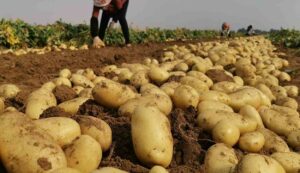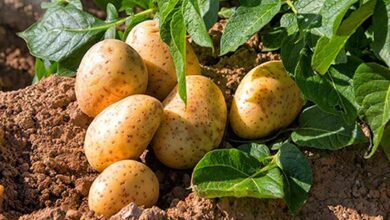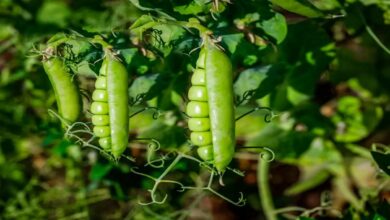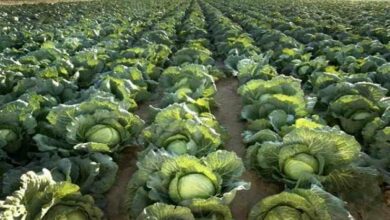Learn how to identify and manage major pests and diseases on potato crop
Potato Crop: Potato crops are often infested by pests and diseases, which may reduce crop productivity. It’s critical to recognize them and take appropriate action. By recognizing and controlling them, farmers can increase crop productivity. The potato crop is susceptible to early blight, late blight, and white beetle disease if it is seen. While the blight illness weakens the leaves and ruins the crop, insects such as the white beetle harm the potato’s roots. We shall study in depth some of the finest methods to safeguard the potato crop from these illnesses in today’s essay.

Potato diseases and major pests
1. The white beetle
The female of this brown insect lays eggs on the ground from May to August. These eggs hatch into dull-colored larvae that consume the potato’s roots. The crop dries out as a result.
Administration:
Utilize one light trap per acre from 7 to 9 p.m.
Apply 25 kg of carbofuran 3G per acre while you are sowing.
2. Blight that appears late
Potato leaves begin to dry out from the tips and margins when this disease strikes. A cracking sound is produced when the dry portion is brushed.
Administration:
Apply two grams of powdered Mancozeb 75% soluble in one liter of water every fifteen days.
Apply the following medications, diluted with 2–2.5 grams per liter of water, in the event of a severe infestation:
64% Mancozeb + 4% Metalaxyl
Mancozeb 63% + Carbendazim 12%
18% Metalaxyl + 64% Mancozeb
3. Blight in its early stages
This disease causes dark patches on the leaves that resemble concentric rings. The leaves get blighted as these patches enlarge.
Administration:
Use clean, healthy seeds and keep the field tidy.
Apply two to two and a half grams of the following medications per liter of water:
Mancozeb powder, 75% soluble
Mancozeb 63% + Carbendazim 12%
Zinc powder, 75% soluble
Powdered 50% soluble copper oxychloride
Crucial details
For further information, call the Kisan Call Center at 18001801551, or get in touch with your district’s Assistant Director (Plant Protection).





